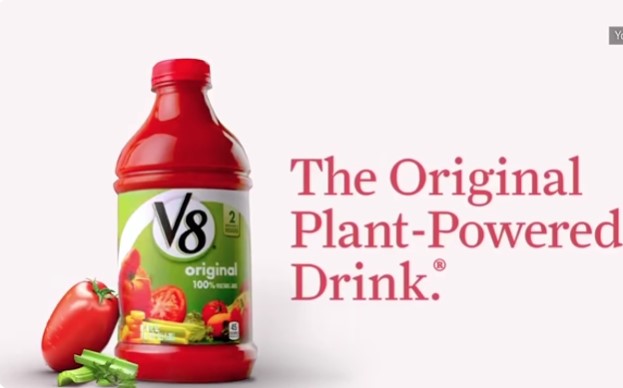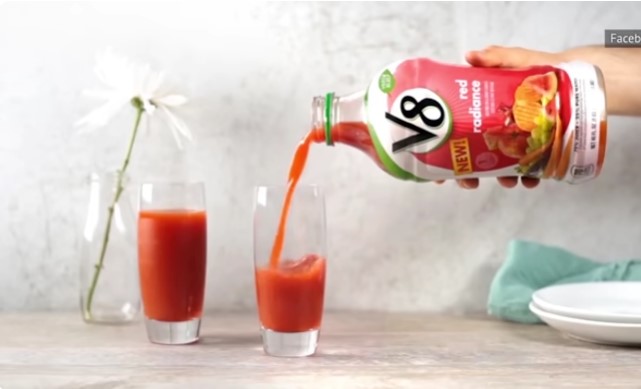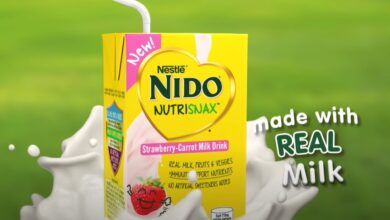V8 Nutrition Facts
V8 juice, a staple in many households, is lauded for its convenient blend of vegetables, providing essential nutrients in a quick and easy format. But what exactly makes up this popular beverage, and how beneficial is it for your health? Let’s dive into the details of V8 nutrition facts, its benefits, and potential drawbacks.

Introduction
V8 juice, often seen as a healthy alternative to sugary drinks, combines the juices of eight vegetables into a single, nutrient-packed beverage. Originally developed in 1933, V8 has become synonymous with vegetable juice. The original formula includes tomatoes, carrots, celery, beets, parsley, lettuce, watercress, and spinach. Whether you’re looking to boost your daily vegetable intake, or simply enjoy a refreshing drink, understanding the nutritional content and health impacts of V8 is essential. This article will explore the nutritional benefits, potential drawbacks, and frequently asked questions about V8 juice.
Nutritional Breakdown
Original V8 Juice (per 12 fl oz)
- Calories: 60
- Fat: 0 g (0 g saturated fat)
- Sodium: 960 mg
- Carbohydrates: 13 g (2 g fiber, 10 g sugar)
- Protein: 3 g
- Vitamin A: 30% DV (Daily Value)
- Vitamin C: 120% DV
V8 juice is notably low in calories and fat, but it contains a significant amount of sodium, which is an important consideration for those monitoring their salt intake. The vitamins A and C present in V8 are beneficial for immune function and vision.
Health Benefits of V8
Rich in Vitamins and Antioxidants
- Vitamin A: Essential for vision, immune function, and skin health. V8 juice provides a substantial amount of this vital nutrient.
- Vitamin C: Supports immune health, aids in the absorption of iron, and acts as an antioxidant to protect cells from damage.
- Lycopene: Found in tomatoes, this antioxidant may reduce the risk of heart disease and certain cancers.
Potential Health Benefits
- Heart Health: The antioxidants in V8, particularly lycopene, can help reduce systolic blood pressure, contributing to cardiovascular health.
- Cancer Prevention: Lycopene may also lower the risk of cancers such as prostate, lung, and stomach cancers due to its ability to prevent the growth of cancer cells.
- Eye Health: Beta-carotene in V8 is converted into vitamin A in the body, promoting good vision and overall eye health.
- Exercise Recovery: Some studies suggest that the antioxidants in V8 can help reduce oxidative stress and post-exercise fatigue, potentially enhancing athletic performance.
Potential Drawbacks
High Sodium Content
One of the primary concerns with V8 juice is its high sodium content. A single serving can contain nearly 27% of the recommended daily allowance of sodium. This can be problematic for individuals with high blood pressure or those trying to reduce their sodium intake. Lower sodium versions of V8 are available, offering a healthier alternative.
Allergies and Adverse Effects
Individuals with pollen allergies might experience oral allergy syndrome (OAS) when consuming V8 juice, particularly due to the presence of tomatoes. Additionally, certain medications might interact negatively with the components in V8 juice, similar to interactions observed with grapefruit juice.
Varieties of V8 Juice
The original V8 is just one of many options available. Other varieties include:
- V8 Low Sodium: Offers the same vegetable blend with significantly less sodium.
- V8 +Energy Drinks: Combines vegetable juice with fruit juice and caffeine for an energy boost.
- V8 +Hydrate: Contains added electrolytes for improved hydration.

Frequently Asked Questions
What are the key benefits of drinking V8 juice?
V8 juice provides essential vitamins like A and C, antioxidants such as lycopene, and a convenient way to increase your vegetable intake. It’s particularly beneficial for boosting immune health, supporting eye health, and potentially reducing the risk of heart disease and certain cancers.
Is V8 juice suitable for special diets?
Yes, V8 juice is suitable for gluten-free and keto diets as it contains no wheat-based ingredients and is low in carbohydrates. However, those on a low-sodium diet should opt for the low-sodium variety.
Can V8 juice replace whole vegetables in my diet?
While V8 juice offers many of the same vitamins and minerals as whole vegetables, it lacks the fiber that whole vegetables provide. Fiber is crucial for digestive health and maintaining fullness. Therefore, V8 should complement, not replace, whole vegetables in your diet.
Are there any side effects to drinking V8 juice?
The high sodium content can be a concern for individuals with high blood pressure or those on a low-sodium diet. Some people may also experience allergic reactions or food-drug interactions. It’s always best to consult with a healthcare provider if you have any concerns.
How should I store V8 juice?
Unopened V8 juice can be stored in the pantry. Once opened, it should be refrigerated and consumed within 14 days for optimal freshness.
By understanding the nutritional content and potential health benefits and drawbacks of V8 juice, you can make informed decisions about incorporating it into your diet. Whether you’re looking to boost your vegetable intake or enjoy a nutritious beverage, V8 offers a convenient option with numerous health benefits.
Read also: V8 Energy Nutrition Facts





